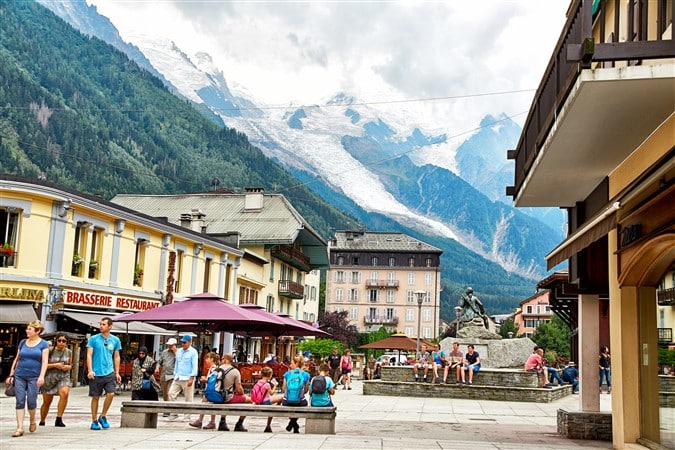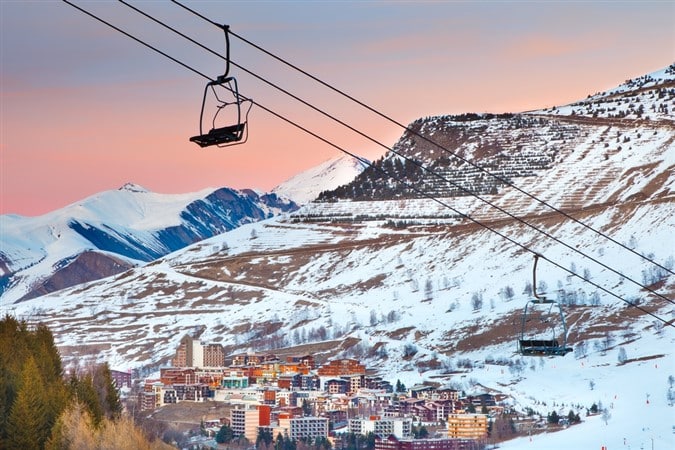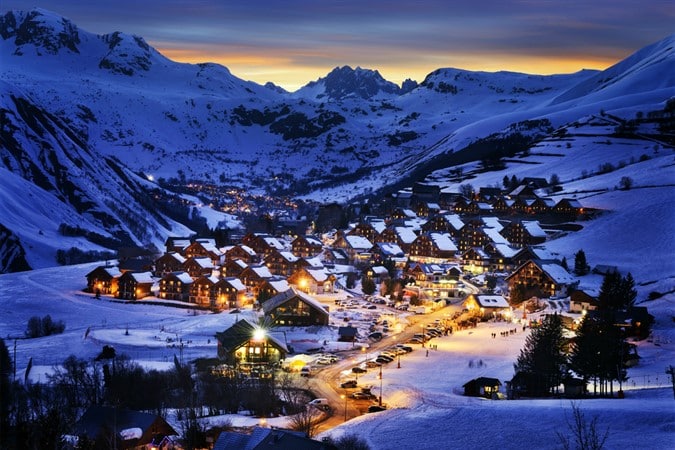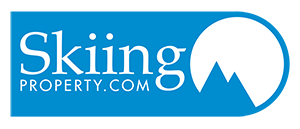Posted on 27 August 2019
Anyone looking at French Alps property is entering the market at an excellent time. Shredding its reputation as home to the rich and famous, skiing and the related real estate market is now for the masses. Skiing also has another side separating it from most other sports.
Its has spawned a multi-billion-pound tourism industry that real estate investors looking for buy-to-let incomes are keen to tap into. In the past, participants used to be in their early 40s up to their mid-60s but this is changing as the younger generation embraces the sport, and generates sustained participation growth.
As this happened, ski resorts have also been turning themselves into year-round destinations so owners get to experience the winter whiteness and summer’s green pastures. Indeed, owning a mountain alpine holiday home gives the chance for long, healthy, cheap summer holidays together too.
The appeal of the Alps for winter sports enthusiasts is obvious: breath-taking mountains, gorgeous sunshine, vibrant après-ski, over 300 well-connected resorts and some 5,000 miles of pistes. And for anyone considers buying a property so they can have all this on their doorstep, a proven rental market and strong capital appreciation are more than just a bonus.
This irresistible combination of geographical, social, and economic attributes attracts property buyers from around the globe to the French Alps every year. After all, who would not want to mix with the European alpine locals whenever it suits them?
French Alps Property: 3 Good Reasons to Buy
Diversification: Resorts offers a diverse range of activities away from skiing, include outdoor pursuits like horseback treks, rollercoasters, and para-gliding, to a more sophisticated culinary experience.
Cosmopolitan Ambiance: Rather than relying on a loyal army of British skiers who head to the French Alps each year, resorts like Val-d’Isere and Courchevel are capitalising on a growing interest among Russian and Chinese markets.
Size is Everything: In recent years, resorts worked together to reduce costs and increase the quality of skiing by creating interconnected alpine playgrounds. The titanic Three Valleys is the world’s, ski area with 600 kilometres of runs spread between the three main resorts of Courchevel, Meribel and Val Thorens.
French Alps Market Conditions and Price Trends
It is a great time to own property in France because of affordable house prices. The trend of falling French property prices skidded to a halt around 2017 and heading uphill again. Having increased by 0.5% in 2016, prices rose by around 2% for apartments and 2.7% for houses in the coming year.
In fact, price rises in the Alps could even outstrip the national average. The region’s property market is almost bullet-proof thanks to its spectacular setting and world-class ski resorts, performing despite financial and political turmoil.
Making your investment in bricks and mortar there a very sound one. If rising property prices makes you worry a French Alp home will become unaffordable, the good news is we are living in a world of low-interest rates, making borrowing money far cheaper.

The Eurozone is a prime example of such favourable conditions for overseas property buyers, driving a surge of residential real estate sales in France, as high as the market has seen in a decade. Capitalising on low mortgage rates can swell budgets to afford an extra bedroom or upgrade from an apartment to a chalet.
You are entering a market with investment potential for capital appreciation while still allowing you to afford your dream purchase but view it as a long-term investment., an alpine dream shouldn’t be a financial burden.
Can I get a mortgage? If you are not a cash buyer, before heading off a picturesque viewing trip, apply for a mortgage, to know how much money you can borrow and the interest to pay. A non-EU citizen can get a French euro mortgage if they pass usual checks, but while EU citizens will only have to stump up with 20 percent as a deposit, non-EU citizens must find a little more.
Taxes: Investors who want a property to pay for itself, should dip their toes into the rental market. France is tougher on non-EU citizens, but for smaller rental incomes, proprietors enjoy a simplified tax regime called ‘Micro Fonciere.’ When it is time to sell, capital gains tax is the same whether you are from within the European Union or outside.
Who Can Buy French Alpine Houses?
While the French cannot buy a house in, for example, Australia, without being approved and being limited to what they can buy, an Australia or an American can buy a home in France. There are, however, visa restrictions on how long they can stay because France does not offer a “golden visa” system for real estate. (Not yet, anyway).
But just how straightforward is it to buy a house in France if you are from outside of the European Union (EU)? Its common knowledge EU citizens enjoy certain rights, banking, tax, insurance, health care, travel when snapping up property in other member states.
Just because these special neighbourly agreements don’t apply if you’re from out of town, you shouldn’t let the prospect of unravelling the red tape put you off embarking on overseas property journey. Thousands of residents from the US, Canada, Russia and many other nations already own properties in France and other EU countries, so it is far from an impossible dream.
Easy Travel to the Alps
If you’re scouring the Alps property market for a ski house, have you considered how you’ll travel there once you have the keys? British property owners in France looking for hassle-free travel to the slopes can use the high-speed Eurostar service, from London St Pancras and Ashford International to the heart of the French Alps.
Gone are the days of tedious airport transfers and unlike airlines, skiers take two suitcases and their ski equipment at no extra cost and with no weight limit.
A choice of services each week allows passengers to travel to Moûtiers, Aime-la-Plagne and Bourg-St-Maurice. The stations in these locations provide direct or much shorter transfer access to popular resorts such as Les Arcs, La Plagne, Courchevel, Méribel and Val d’Isère, compared to flying to gateway airports such as Geneva and Lyon.

Arrive on a Saturday morning by taking the Friday overnight service, before returning on the overnight train the following Saturday – that’s eight days on the slopes, compared to the usual six. With trains hurtling through France at speeds of up to 200 miles per hour, travel times vary between 8 and 11 hours. Travelling to the Alps by train also allows passengers to sit back, relax and take in stunning French landscapes as it hurtles past their window.
But there are potential hiccups in well-laid plans if you do not account for your connection in Paris. Train travel from Britain to the French Alps comprises taking the Eurostar from London St Pancras to Paris Gare du Nord, before hiking across the French capital to catch a TGV train from Paris Gare de Lyon to the Alps.
This section of the journey requires navigating the Metro system or jumping in a taxi through the busy Parisian traffic. To ensure a hassle-free train journey to the slopes, give enough time for connections and double-check these when booking online.
To avoid a mad dash across Paris, take the 07:52 Eurostar instead of the 08:31, leaving a far more comfortable connection time of 88 minutes. The only problem is websites such as Eurostar, Voyages SNCF, Loco2 and Trainline do not provide this option, because of the online booking algorithm set by a US-based company on behalf of the National Society of French Railways. Travellers often book these 58-minute connections or sometimes even tighter connections of 54 minutes.
Although the latter may mean missing the discounted composite ‘Connection fares’ offered when booking two high-speed trains on one ticket.
Driving to the French Alps
Driving through France is appealing. France is much larger than the UK but with a similar population, meaning the roads are quieter than back home, and a day driving through France is easier than an hour on the M1.
France’s geographical diversity takes you on a spectacular drive through its changing landscape, and stunning alpine views as you wind your way through the snowy mountain passes. Plus, you can use your car to get around once you arrive.
With an average journey time of 10/12 hours from the south-east of England, the Alps are accessible via an excellent network of motorways and by far the most flexible way to travel. This includes your trip over or under the English Channel to Calais, on a quick car ferry from Dover or Eurotunnel Le Shuttle from Folkestone. If you live further north opt for a North Sea crossing, to avoid the schlep south on the UK roads.
To ensure your road trip is more Top Gear than Gumball Rally, here is a quick checklist of key considerations before embarking on your journey
- Some motorways in France charge a toll fare. The only way to avoid them is to plan a much slower, more leisurely itinerary on D-roads
- Check your existing insurance policy is valid for driving in Europe
- Some UK breakdown policies also include cover in Europe, if not, take one out in winter.
- Buy snow chains. It is not the letter of the law to use them on French roads, but if the mountain access roads are snowy, the gendarmerie will insist you use them or turn back.
- It is illegal to drive in France with a satnav showing speed camera locations.
- It is compulsory to carry a warning triangle, high vis vest and a breathalyser kit in your car when travelling in France
French Healthcare System
So, what can you expect from the French health system, both for everyday care and if you have an accident on the slopes? Well, lots of skiers testify the French healthcare system is among the world’s best. The well-funded hospitals are modern and well equipped. Your village GP will give great service and there is little if any waiting for an appointment.
You need to affiliate to the system to enjoy it, but otherwise expect to pay doctor’s appointments that increase with prescription drugs and if they recommend ongoing treatment. That’s ok for a short visit but not if you want to live in France and more so if hurtling down a mountain on a board or skis is an exciting pastime.

Most French people and many expats take out “top-up” insurance, which covers parts of treatment the state does not pay – 30%. There are many levels of cover, ranging from around €50 to €100 per month, but be aware the amounts vary across French regions.
Take advice from neighbours and friends and fellow expats for recommendations of a good insurance company. You could give the top-up a miss and still only pay 30% of treatment costs, but anyone at retirement age or older will get peace of mind to fork out for the top-up.
Where to Buy Ski Property in the French Alps?
Consider two factors when deciding where to buy and they are your budget and lifestyle preferences. For example, if Après-ski and a lively social scene are what you hamper after, Meribel, Chamonix, Courchevel and Val d’Isère fair better than other resorts.
However, families opt for Megeve and Les Gets. Backdoor resorts are also emerging as favourable destinations for French Alps Property. These alpine retreats are up and coming hence property prices are lower. Read more about the best places to buy ski property in France here.
Also of Interest
Ski Real Estate Investment Guide: This article talks about property purchases as an investment, and giving hints, tips, and advice on making each euro work for you, we discuss the outlook for the market.

